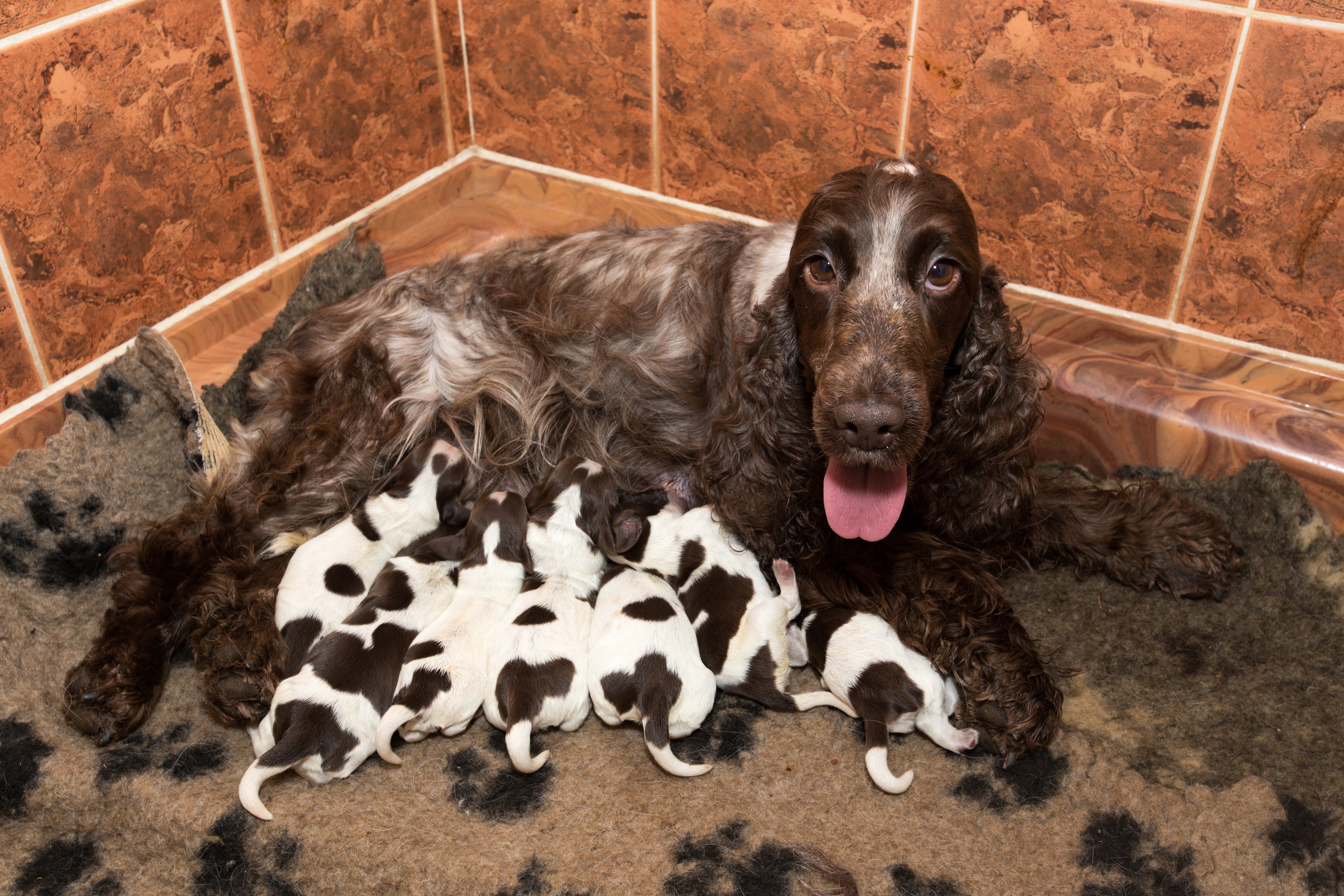- One in five bitches over the age of ten develops pyometra.
- E. coli bacteria is the most common cause of pyometra.
- The mortality rate for pyometra is as high as 10%.

Breeders have long grappled with when to breed a bitch having a successful show or sporting campaign. These accomplished females may be the linchpin of a legacy bloodline via their ability to produce the next generation of champions. Yet, 20 percent of intact bitches are at risk of developing the potentially fatal disease pyometra by 10 years of age — a disease that may end their chance of whelping puppies should it occur early in life.
“It’s heartbreaking when breeders whose prized bitches just finished their careers tell how they assumed their only option to treat pyometra was spay surgery,” says Karen Von Dollen, DVM, MS, DACT, who completed a theriogenology residency at North Carolina State University in 2019 and is board-certified in veterinary reproduction. “Although not every bitch is a candidate for medical treatment, a breeder’s
goals for his or her kennel should be considered.”
What Causes Pyometra In Canines?
An infection of the uterus, pyometra is Latin for “pus uterus.” Triggered most commonly by Escherichia coli (E. coli) bacteria, the disease becomes dangerous when sepsis, endotoxemia, or uterine rupture occur. Some bitches show no signs of pyometra until the illness is advanced. In some cases, emergency treatment is required to prevent overwhelming infection and death. Because pyometra is one of the most common reproductive emergencies, it is considered in any intact bitch that is sick.
The nature of a bitch’s heat cycles, along with hormonal changes and delayed breeding, contribute to the development of this disease. The hormones progesterone and estrogen fluctuate during a heat cycle and change the uterus in preparation for breeding and pregnancy.
“We know that the hormonal environment of the bitch lays the foundational groundwork for this disease to take hold, explains Von Dollen. “Over a bitch’s lifetime, the cumulative effect of the cyclic exposure to these hormones predisposes her to develop pyometra. From there, bacteria seize the opportunity to colonize and proliferate.”
Early detection of pyometra has a greater chance of success with medical management. This may be more easily recognized in open cervix pyometra due to a vaginal discharge draining from the cervix. However, up to 86 percent of bitches medically treated for this reproductive disease will have a recurring episode.

How To Prevent Pyometra
If medical therapy is desired for bitches needed to help preserve a breeding program, diligent monitoring for possible harmful side effects from prostaglandin and antibiotic treatment is needed. Thus, owners and veterinarians should work together to ensure a healthy recovery, while also being on guard for subsequent pyometra. Spay surgery is recommended after the bitch has produced puppies.
“Because of the significant risk that pyometra will return, I advise breeders to make every effort to breed a bitch on her next heat cycle following successful medical treatment of the disease,” says Dr. Von Dollen. “An idle uterus is the ideal setting.”
Taking steps to optimize the potential for successful breeding after medical management is helpful. This may involve precise ovulation timing, selecting a proven stud dog that has sired a litter within the previous six months, breeding twice during the fertile window, and using intrauterine insemination.
On the contrary, if you’re not planning to breed a bitch, spay is the recommended treatment for pyometra. An ovariohysterectomy in which the ovaries and uterus are removed effectively eliminates the pus-filled uterus and prevents a recurrence of the disease.
“Owners of intact breeding bitches should not delay in breeding their animals,” cautions Von Dollen. “As soon as you have decided to breed your bitch and her show or performance career allows, you should breed her to produce the desired litters needed to safeguard her genetics before she ages into a risky category for this condition.”
About Purina Pro Plan
Purina Pro Plan is a leader in the advanced nutrition category, with more than 140 targeted formulas to help your pet thrive throughout every stage of life. For more information, visit www.proplan.com or follow @ProPlan on Twitter, Instagram, or Facebook.
This article is intended solely as general guidance, and does not constitute health or other professional advice. Individual situations and applicable laws vary by jurisdiction, and you are encouraged to obtain appropriate advice from qualified professionals in the applicable jurisdictions. We make no representations or warranties concerning any course of action taken by any person following or otherwise using the information offered or provided in this article, including any such information associated with and provided in connection with third-party products, and we will not be liable for any direct, indirect, consequential, special, exemplary or other damages that may result, including but not limited to economic loss, injury, illness or death.


